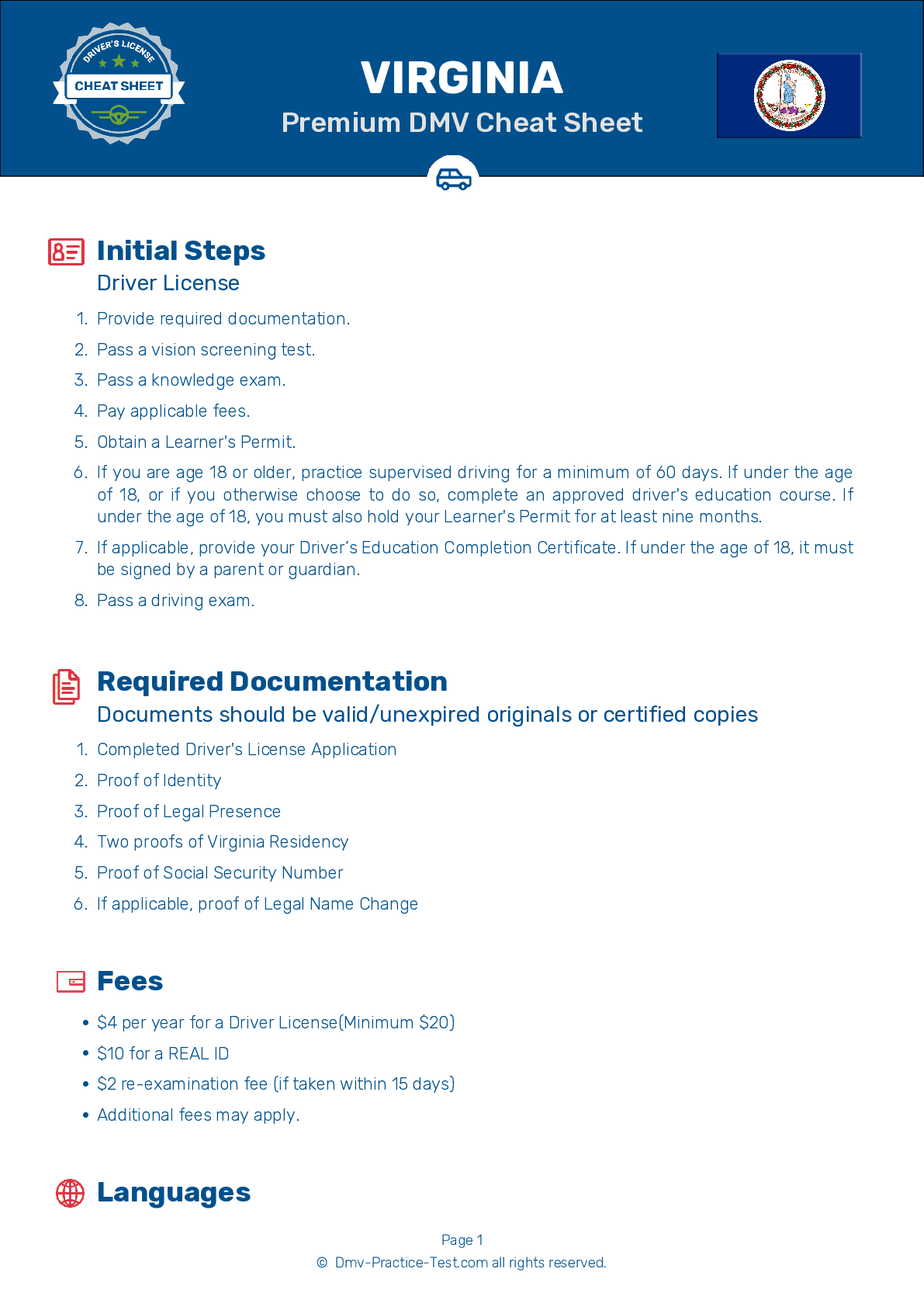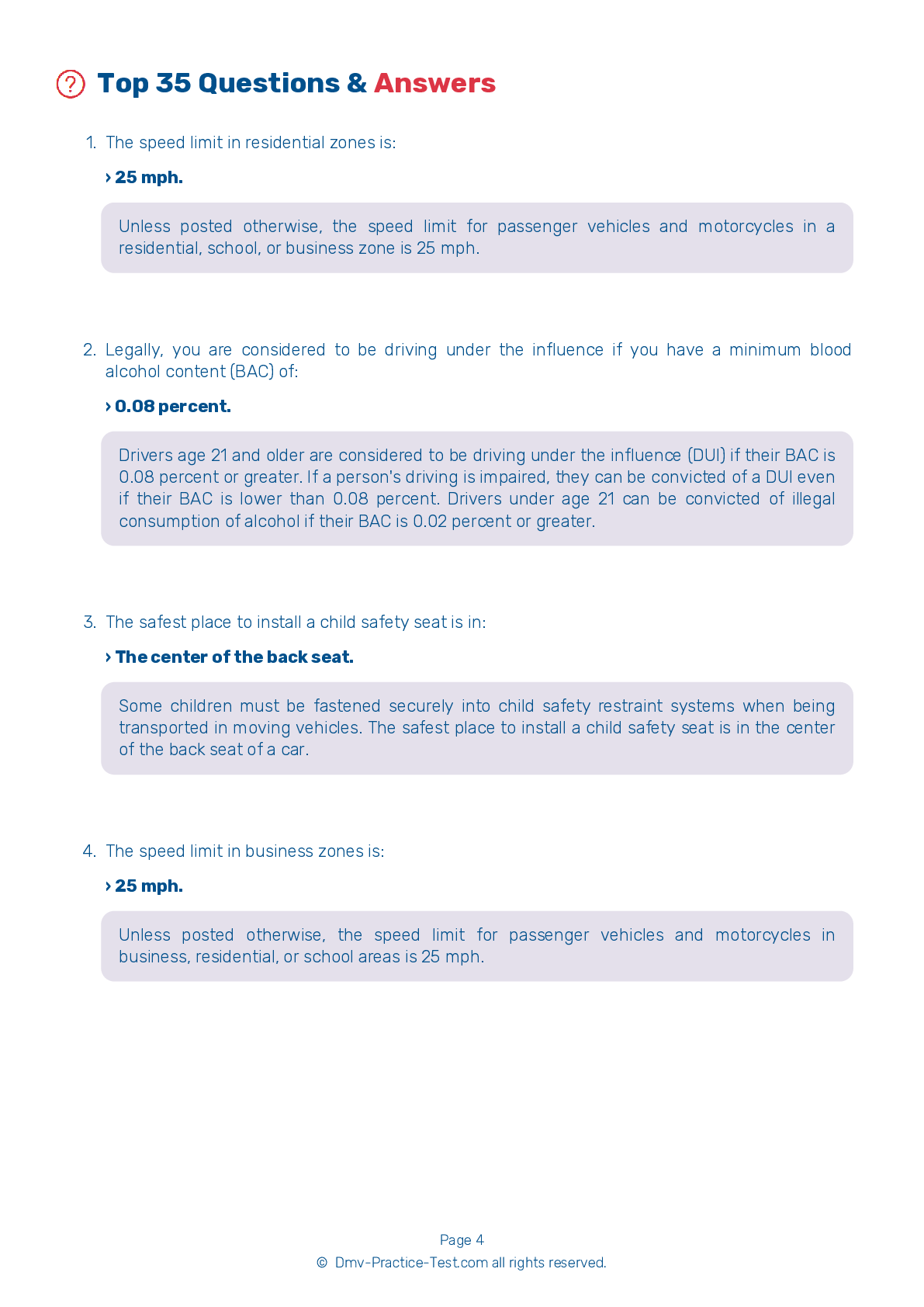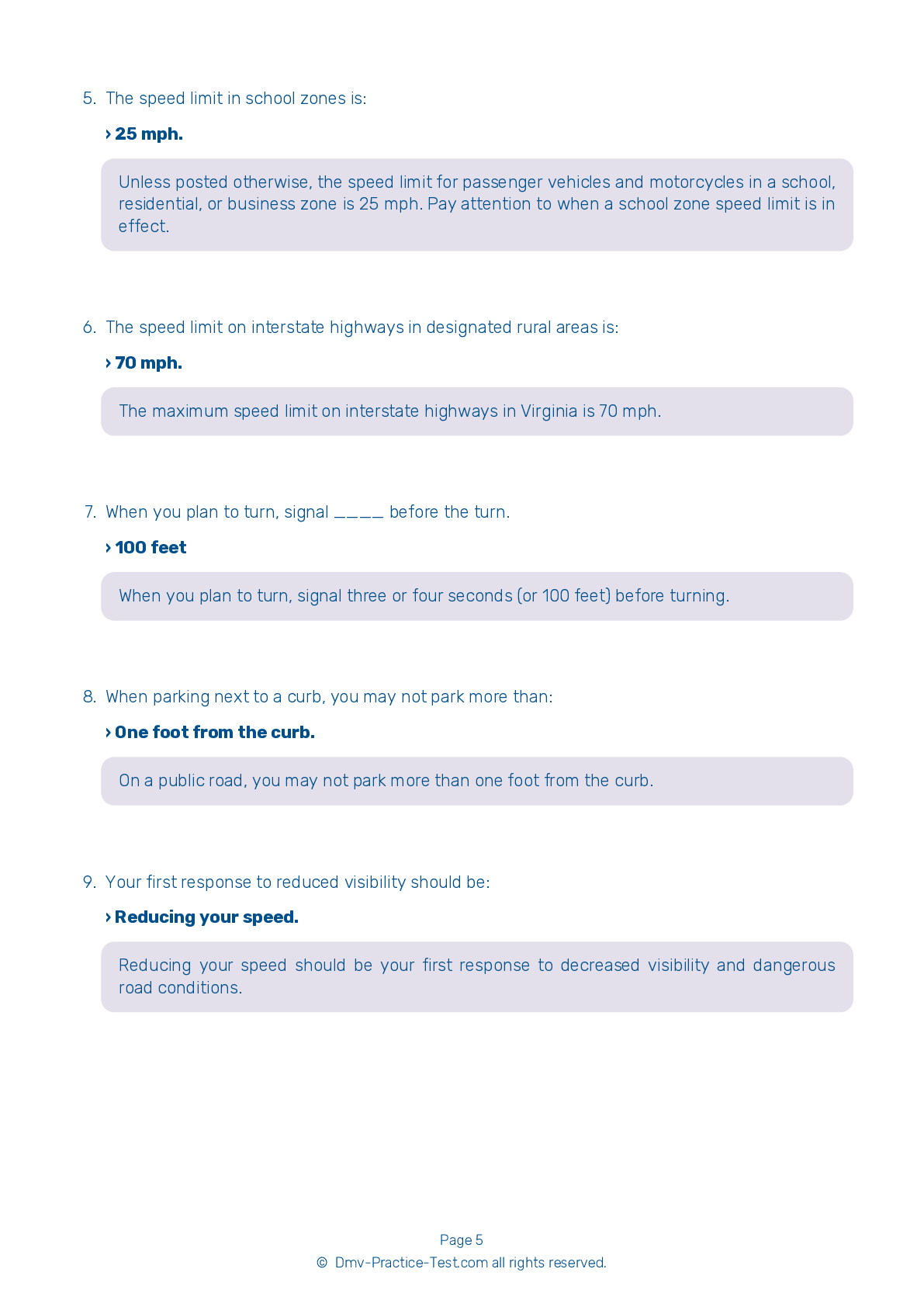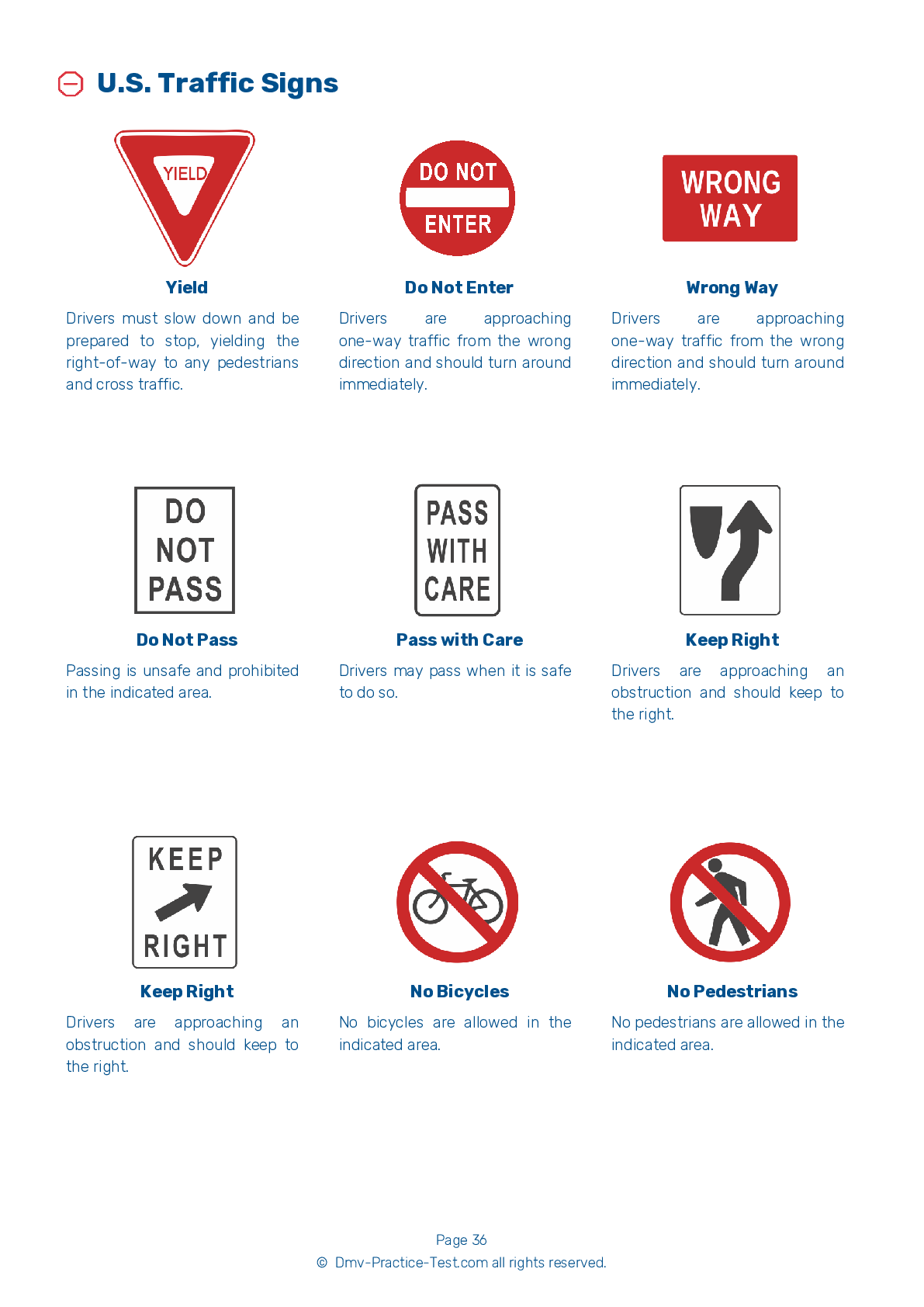FREE Virginia DMV Practice Test #22 Page 3 of 5
The practise exams for the Virginia DMV have been updated for January 2026. It comprises questions based on the most important traffic signals and laws for 2026 from the Virginia Driver Handbook. To study for the DMV driving permit test and driver's licence exam, use actual questions that are very similar (often identical!) to the DMV driving permit test and driver's licence exam.
Each question on the practise exam has a tip and explanation to help you recall the ideas. Questions about traffic rules, traffic signs, and driving statutes, as well as knowledge from the Driver Handbook, will be included in the written portion of the official Virginia DMV test.
You must properly answer 30 of the 35 questions to receive a passing mark. Use the Virginia Department of Motor Vehicles' practise exam to help you prepare for your instruction permit or driver's licence.
The DMV exam is offered in a variety of languages.
Using any form of testing help will result in an automatic fail, and the DMV may take further action against your driver's licence, so avoid it.
17 . Drivers are responsible for making sure that children are properly secured in vehicles.
A driver transporting anyone younger than age 18 must ensure that the passenger is properly secured in a safety belt, booster seat, or child safety seat (as applicable) no matter where the child is seated in the vehicle.
18 . Drivers may not pass from either side of a ____ centerline.
A double solid yellow line down the center of a two-way road means that it is prohibited for traffic from either direction to cross the center to pass.
19 . Your first response to reduced visibility should be:
Reducing your speed should be your first response to decreased visibility and dangerous road conditions.
20 . When you hear the siren or see the flashing lights of an approaching emergency vehicle, you must:
Yield the right-of-way to any approaching emergency vehicle that is using its flashing lights or siren, regardless of its direction of travel. You must immediately drive to the right side of the road and stop until the emergency vehicle has passed. If you are within an intersection, pass through the intersection before coming to a stop on the right side of the road.
21 . Aggressive driving:
Aggressive driving is the act of driving while violating traffic laws with the intent of harassing or endangering other drivers. This dangerous driving behavior can result in license suspension for a period of between ten days and six months.
22 . A work zone:
Work zones are often stationary, but they may also be present in the form of moving vehicles striping lines, mowing, or removing snow. Work zones are marked by orange signs with black lettering or symbols. Slow down and pay extra attention when approaching or driving through a work zone.
See the exact questions that will be on the 2026 Virginia DMV exam.
99.2% of people who use the cheat sheet pass the FIRST TIME
LT gives us an insight on how the cheat sheet provided her with all the study questions she needed before taking her test.
Joe initially studied with the handbook and failed his test, he eventually found us online, studied and pass his test the first time around.



